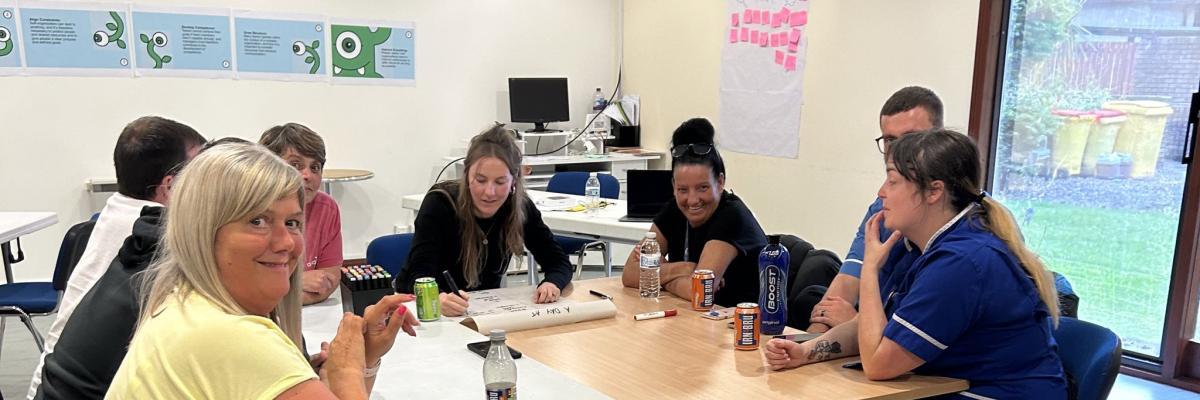Abbotsford Care partnered with Iriss to explore how their paperwork can prompt and record the dignity that care home staff provide everyday to their residents. They recognise that paperwork is better at recording the quantifiable elements of support; and doesn’t always capture the deeper ways that staff support residents, and the team at Abbotsford want to consider this challenge.
Going to meet the care home managers for the first time, I had an idea of what we might talk about in terms of dignity in a care home environment - tailored personal care, ensuring visitors are welcome, or receiving the right medication. For me, these were the things that first came to mind.
However, where the conversation ventured in reality, was much broader, much more layered than that. When I met those managers, the discussion went beyond providing person centred care, into wondering how best to achieve each persons’ ideal care and support in the context of communal living situations. We visited ideas of residents' right to privacy, and how this can be delicately balanced against including families in someone's care plan. As the Abbotsford team discussed, there is so much to support and care; reaching into every aspect of the work that they do. This isn't always easy to record and document on a form. It is much easier to check off tasks that have been completed, than it is to capture, for example, the value of a meaningful conversation.
I returned to Abbotsford a few weeks ago, to continue the conversation about recording dignity in a workshop session with care home staff. We used our time to map out how a day in their working life looked. There are different roles, with different responsibilities, all working together to provide dignified, person centred care to their residents. While we explored what dignity for care home residents looks like, what stood out in that mapping was just how many tasks and responsibilities care home staff have. The day is full, with expected tasks such as waking residents, providing personal care, administering medication and preparing and supporting with meals; and the things you can't easily plan for, like making someone a much needed cup of tea, or chatting with residents’ families and visitors.
Despite the well publicised challenges of high workload and stretched workforces; despite being busy and stretched on a day-to-day basis; and even though care workers know and feel that they’re working in pressurised conditions… seeing those tasks written down really helped the staff members reflect on just how much they do on a daily basis:
“You don’t think it’s so bad until you sit and look at it”
“If you were describing that job to somebody, who would want to come and do that? If you were saying this is what you do today, people would think ‘that is impossible’”
For me, and the workshop participants, it was important to recognise that their days are packed with actively caring for residents. While paperwork is an important and necessary part of their roles, we need to consider workload when we think about how and what is recorded.
“See all that writing… that’s a lot, a lot of writing, when you’re meant to be doing the caring”
We see across our work in Iriss that the paperwork can be perceived as getting in the way of the real work. And often that is because the paperwork is there to fit a function of tick-boxing that isn't as well linked to the meaning of the job as it should be. It is also often duplicated, and it is very seldom used to reflect, learn and improve on process and practice. As a sector, we need paperwork. We need it to show what and why things were done. It protects those that are supported, as well as staff, to follow lines of accountability and good practice. But, it has to work in tandem with good process and practice.
I’m excited as we move into the next part of this project alongside colleagues at Abbotsford. We will carry the consideration of how to balance recording of the breadth and depth of care that staff provide, with the limited time and high workloads staff have. We hope that we will begin to find ways through; making that recording meaningful as we go; while also exploring what other aspects the staff think would make a difference to the residents they support.


